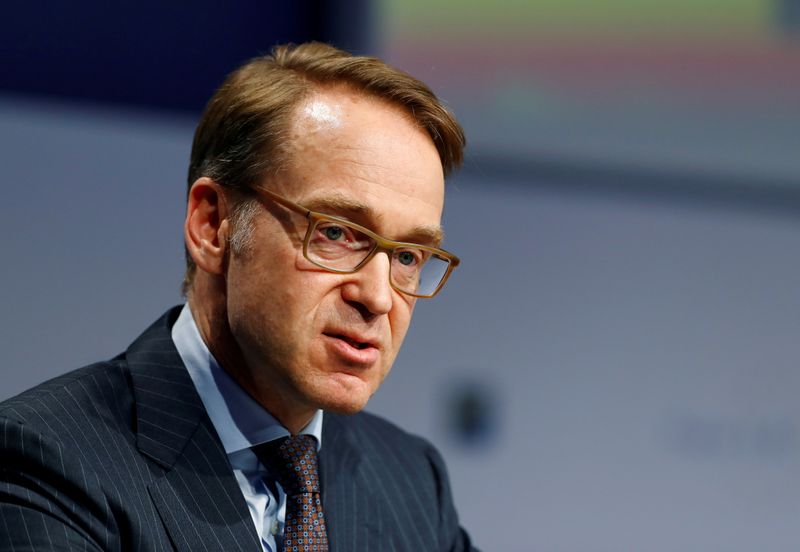FRANKFURT (Reuters) – The European Central Bank doesn’t need to ease policy further because measures taken to fight a pandemic-induced recession could boost the euro zone economy more than expected, ECB policymaker Jens Weidmann said.
Weidmann also expressed doubts about letting inflation overshoot after it has been low for too long, buying stocks or deliberately suppressing bond yields, in an interview with Boersen-Zeitung published on Wednesday.
The head of Germany’s Bundesbank and one of the ECB’s most conservative policymakers, Weidmann was countering calls for more stimulus from dovish rate setters like board member Fabio Panetta, in an internal ECB debate about the path ahead for a central bank that has missed its inflation goal for a decade.
“At the moment I see no reason to deviate from our assessment,” Weidmann said. “The monetary policy stance is currently appropriate.”
He argued the economy could perform better than the ECB’s baseline scenario, which put growth at 3.2% and inflation at 1.3% in 2022, because that did not include a 750 billion-euro package agreed by European Union leaders over the summer and French fiscal easing worth 100 billion euros.
Weidmann warned of likely legal trouble with Germany’s constitutional court if the ECB extended the exceptionally flexible terms of its Pandemic Emergency Purchase Programme to its regular bond purchases.
And he added he could not reconcile the purchase of shares by the ECB or the targeting of a specific level in sovereign bond yields — two measures deployed by the Bank of Japan — with a market economy and the central bank’s mandate.
The ECB is in the middle of reviewing its inflation goal of just under 2% after lagging behind it for a decade.
Some policymakers are debating whether to follow the lead of the U.S. Federal Reserve. The Fed said in August it would aim for average inflation of 2%, so that periods when prices rise too slowly can be compensated for with periods of faster growth.
Weidmann said this could result in an asymmetric target, as any central bank would be loath to cause a recession simply to bring inflation back to an average after a period of overshooting.
(Reporting By Francesco Canepa; editing by Balazs Koranyi, Larry King)






















